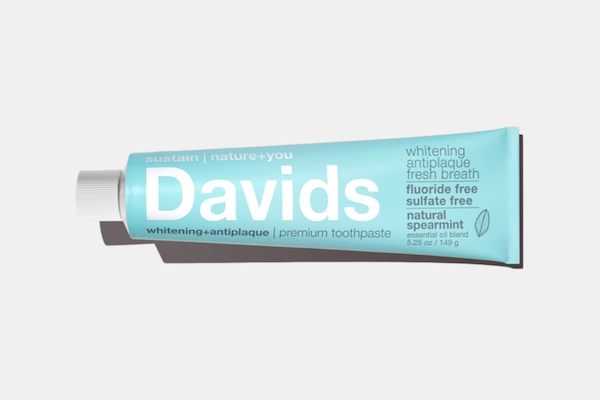Recently, the Supreme Court passed down a ruling that left the sustainability community in a tailspin. To understand why this ruling is important, we have to start with the Obama administration.
The case West Virginia v. the EPA centered around Obama’s Clean Power Plan. This plan aimed to reduce the amount of greenhouse gasses emitted by the coal industry by moving away from coal to renewable energy. Today, coal provides 21% of the electricity in the US, but makes up ½ the carbon dioxide emissions from all power productions. Power plants are the second largest greenhouse gas emitters. First is transportation.
The Clean Power Act changed dramatically during the Trump administration and was never instituted. In West Virginia v. the EPA, a handful of states sued the EPA. They felt the organization shouldn’t have the power to set standards around greenhouse gas emissions and shut down coal-fired power plants to shift to renewable energy sources, as per the Clean Power Act.
Ultimately, the supreme court blocked the EPA from doing something they were… never actually able to do. But it’s not just about the West Virginia v. the EPA case. It’s the precedent that’s been set.
What Happened During the West Virginia v. the EPA Ruling?
In the West Virginia v. the EPA case, the Supreme Court voted 6 to 3 that the Clean Air Act does not give the EPA the authority to set standards on greenhouse gas emissions for power plants. This ruling limits the EPA from making broad, regulatory decisions to protect the air and our ozone layer.
What’s the difference between the Clean Power Act and the Clean Air Act? The Clean Power Act is from the Obama administration and was intended to help America move away from fossil fuels to renewable energy.
The Clean Air Act was established in 1963 with the intention of creating cleaner air for Americans and as a byproduct, improving public health. When proposed, this act passed with wide sweeping popularity – a hard thing to imagine these days.
Those who are excited about this ruling see it as a victory for energy independence. The EPA now has less opportunity to control how individual power plants operate.
The good news is the EPA hasn’t lost its ability to regulate greenhouse gas emissions. Rather, the organization’s policy making is limited. This is because Massachusetts v. the EPA is still intact, which allows the EPA to regulate the carbon dioxide and methane pollution of American industries.
Passing environmental laws could be difficult moving forward, as carbon dioxide emissions laws will have to pass through Congress first. This includes implementing caps on trade programs or controlling greenhouse gas emissions.
As you may have noticed, over the last couple of years Congress has had a hard time getting aligned and passing… anything. Leaving climate change opportunities in the Supreme Court’s, or Congress’ hands are likely to mean they’ll never be enacted...
It’s also going to be harder for the EPA to shift the US’s electrical system away from fossil fuels. And, with a conservative court overturning long held rulings, there’s no telling if Massachusetts v. EPA will last – which would be our planet’s worst case scenario.
Long Term Effects on Our Air and Human Health
West Virginia v. the EPA didn’t only contribute to our climate crisis, it will also contribute to our ongoing health crisis via air pollution.
Power plants emit CO2, along with a long list of other toxic gasses like nitrogen oxides, sulfur oxides, and particulate matter. According to WHO Global Air Quality Guidelines, much of the United States lives in unsafe air conditions. Air pollution has long lasting and damaging health effects on humans.
In fact, fossil fuel-related air pollution caused almost 200,000 US deaths in 2015, according to 2019 research. It’s important to note that these air quality issues significantly and disproportionately affect BIPOC and low-income families than other demographics.
What’s to Come for Climate Justice Initiatives
While Donald Trump may no longer be in office, the effects of his presidency will likely linger for centuries to come.
Trump appointed 200 federal judges, including three Supreme Court Justices. These judges are often conservative and are open to challenging environmental laws. All across the nation, the health of our planet will be weighed against independent freedom, liberties, and the opportunities of capitalism.
An example of this is a case coming up in the Supreme Court this October, that will decide if wetlands are “waters of the United States” and can be regulated under the Clean Water Act. This case will threaten the EPA’s ability to regulate pollution in American waterways.
Hopeful Things Worth Noting
The biggest beacon of hope is that the Supreme court hasn’t struck down Massachusetts v. the EPA, and doesn’t appear to have any plans to… yet.
We’ve also seen the Biden administration commit to playing a larger role in helping the US achieve its environmental sustainability goals despite the limited abilities of the EPA. The administration is planning to restrict coal burning power plants that emit soot, mercury and nitrous oxide.
Despite widespread criticism, White House officials remain hopeful that they can cut ½ the US’s greenhouse gas by 2030, and put our country on a path to fully eliminate fossil fuel emissions from the power sector by 2035. This is one of the cornerstone promises Biden ran on for his election.
Another beacon of hope is that ever since the Clean Power Act, despite its inability to be passed, the coal industry is on the decline anyways! The economics of coal have become too expensive to continue, so coal plants across the country are shutting down, giving renewable resources an opportunity to serve in their place.
Next Steps After the Supreme Court EPA Ruling
We never want to contribute to your climate anxiety or reduce you to doom scrolling. That’s why with articles like these, we do our best to find the way forward from difficult situations. We, the people, have the power and ability to change the trajectory of our climate crisis.
Below are tangible next steps that you can make, either as a business owner or as a consumer. With a split government where half of the elected individuals don’t have the planet’s best interest at heart, we can step in and create the changes they refuse to enact.
What Can You Do As a Business Owner?
If you’re a business owner, it’s important you take steps to understand your environmental impact.
- Do you know what your carbon footprint is?
- Are you actively looking for ways to reduce, reuse, and recycle in your business?
- Do you have a way to measure your carbon footprint?
- Have you found a carbon offsetting partner to work with?
- Are there alternative avenues to curb your waste?
- Are you investing in renewable energy where you can?
While getting started on your sustainability journey can be overwhelming, even little steps can make a big difference. There are also many sustainability consultants that are eager to assist you with your switch to a more sustainable business model.
What Can You Do As a Consumer?
Unfortunately, the burden of the climate crisis has yet again fallen on the shoulders of the general public. We know that sustainable swaps can be hard to do, but we do our best to make living a more sustainable life easy at Lochtree. Whether you’re investing in a zero waste laundry detergent or learning about the COP for the first time, we’re here to walk through this sustainable journey with you.
The following are actions you can take to help promote a more sustainable planet.
- Protest, because our health and the planet’s health is at stake.
- Support sustainable businesses, because each time you invest in a company that’s protecting the planet, you’re taking funds away from organizations that harm the planet.
- Ask for transparency from the businesses you support. If they don’t release an ESG report, ask them why? Encourage transparency in transactions.
- Reduce your own carbon footprint. Whether you’re investing in an electric vehicle or swapping out one single use plastic item in your home, over time this will make a big difference.
And, if you do nothing else, please vote for elected officials, at every level, in every position, who believe in climate change and want to play a part in fixing our climate crisis.






